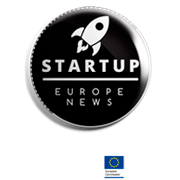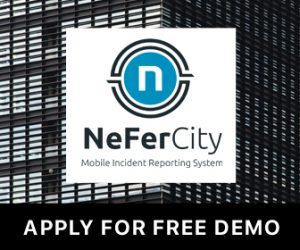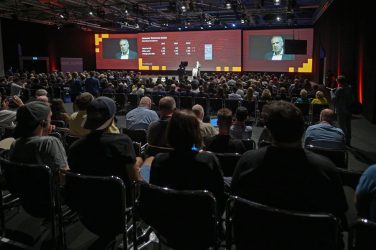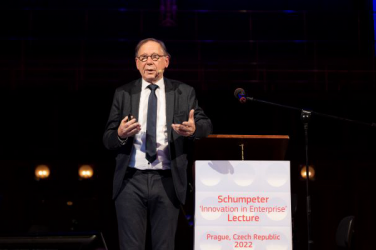The European Enterprise Promotion Awards (EEPAs) are currently in their 12th annual edition.
The Awards celebrate diverse projects from across Europe that facilitate entrepreneurship and entrepreneurial endeavours. This year’s shortlisted projects come from: Austria, Belgium, Bulgaria, Denmark, Estonia, Finland, France, Germany, Greece, Ireland, Lithuania, Netherlands, Portugal, Romania, Slovakia, Spain and the United Kingdom.
In 2018 303 National EEPA entries were received from 32 participating countries. 56 of these projects were selected by the National Co-ordinators of each country and were put forward to the European level of the competition. Portugal produced a spectacular effort with 82 national entries, the highest national total ever achieved in EEPA’s history.
On 26 September, the jury established a shortlist of 19 nominees in six categories. This year’s jury was made up of members of the outgoing Bulgarian Presidency of the Council of the European Union and the current Austrian Presidency, along with representatives from the European Commission, the Committee of the Regions, business, and academia.
The 2018 shortlist is as follows:
Category 1 – Promoting the Entrepreneurial Spirit
Belgium: De Makersrepubliek: Handmade in Brugge, The Box en Turbo
The Makersrepubliek specifically targets young people and women and brings together three initiatives, Handmade in Brugge, TURBO and The Box Brugge. Brugge is known for pioneering craftsmanship and through this initiative wants to bring traditional and innovative practices together to encourage businesses to consider the city as an attractive location, with innovative facilities.
Estonia: Superheroes
Superheroes is an entrepreneurship and leadership accelerator dedicated to unlocking the potential of 13-17 year old girls. Participants test their strengths, boost their life skills and run projects in teams supported by mentors. A unique methodology combined with engaging activities empowers girls to become more independent and entrepreneurial.
Greece: Piraeus Blue Entrepreneurship
The Municipality of Piraeus has implemented several blue entrepreneurship actions fostering the sustainable use of the sea and its resources for economic development. The goal is to create new sustainable businesses and jobs in the Blue Economy and to promote a new innovative business ecosystem. So far the project has produced 20 new startups, 45 new jobs and 55 networking events.
Category 2 – Investing in Entrepreneurial Skills
Austria: i2c STARTacademy
The i²c STARTacademy is an innovative research commercialisation format that provides TUW scientists with a personalised market entry framework plan, in collaboration with international mentors, coaches, investors and industry representatives. Three years after it was launched the project has provided training and coaching to 91 researchers, resulting in the generation of 23 start-ups and 85 jobs.
Ireland: ACORNS – Accelerating the Creation of Rural Nascent Start-ups
ACORNS is a peer to peer support programme, located in rural Ireland, in which successful business women voluntarily facilitate and mentor groups of early stage female entrepreneurs. To date over 150 female entrepreneurs have been supported with a range of demonstrable results including new jobs created.
Lithuania: Entrepreneurship Academy
Entrepreneurship Academy is a tool and education platform for the development of entrepreneurial competences and skills. It brings together a network of over 70 partners and allows youth to become acquainted with local businesses and entities, and learn about entrepreneurship and personal development. Since 2015 more than 800 students and 300 schoolchildren have participated.
Category 3 – Improving the Business Environment
Romania: Start up Nation Romania
This programme encourages the establishment and development of SMEs, and seeks to improve their economic performances, create new jobs and insert disadvantaged persons, the long term unemployed and graduates into the labour market. The programme has overseen increased investment in innovative technologies, resulting in 21 000 new jobs, more than 16 000 of which for disadvantaged people.
Spain: Open Innovation 4.0.
This public-private cooperation programme aims to improve the business environment of Asturias through a startup innovation programme. Selected start-ups join a 4.0 acceleration programme featuring both group and individual tutorials with sector experts, as well initial funding to prepare joint proposals, and access to specific funding for Open Innovation to implement collaborative projects.
United Kingdom: Anchoring economic growth in the Tees Valley
This project has achieved significant and tangible results in helping the Tees Valley region overcome the loss of key industries. Working closely with public and private partners, it has delivered targeted support that has seeded new enterprises and helped businesses to tackle barriers to economic growth.
Category 4 – Supporting the Internationalisation of Business
Bulgaria: Supporting the internationalization and digitalization of SMEs in Bulgaria and Europe
This project facilitates both the internationalisation and digitisation of Bulgarian SMEs through the organisation of high profile international events and enables participation in international exhibitions and specially organised B2B matchmaking meetings. The project also proactively promotes the benefits of business digitisation through skills training and access to information and good practice examples.
Denmark: Lean Landing
Lean Landing helps small businesses access new European markets quickly and test whether their products or services can be sold in foreign markets through direct dialogue with potential customers and partners abroad. The network consists of 19 international partners, accelerators and incubators, all of which open their facilities to the 190 participating SMEs.
Estonia: Development of the Estonian timber sector as the biggest exporter of wooden houses in the European Union
The Estonian Wooden House Cluster aims to increase both the international competitiveness and exports of Estonian wooden house producers, and become a trusted brand in foreign markets. The initiative has seen stable growth in sector turnover and exports, preserved traditional Estonian building practices, sustained many jobs and increased the value of sector products.
Finland: Kasvu Open – company growth sparring programme
Kasvu Open offers free sparring to SMEs to promote growth and business development, and improve chances of internationalisation. Through sparring, selected companies’ growth plans are challenged, adapted and supported by industry experts. The programme also includes a tailored growth path, run and funded by partners who mentor and guide the SMEs.
Category 5 – Supporting the Development of Green Markets and Resource Efficiency
Netherlands: HAS Food Experience
The HAS Food Experience, run by the HAS University of Applied Sciences, acts as launch platform for innovative projects in the food sector. During the past 10 years, over 499 food projects have been presented, of which more than 40 have developed into a start-up or found their way to the market.
Portugal: Matosinhos Carbon-zero Living Lab enhanced by local carbon market
The Matosinhos Carbon-zero Living Lab tests sustainable and innovative solutions, products and services to foster a local carbon market in an industrial coastal municipality. The local carbon market uses CO2 emissions credits gained through the adoption of sustainable solutions which can be exchanged for goods and green services.
Slovakia: Green bicycle
The Zelený bicykel project is a bicycle sharing system focusing on smaller cities in Slovakia that are uninteresting for large bike-sharing companies. The objective is to provide citizens with an environmentally friendly, healthy and economical transportation alternative for shorter distances across their cities, and promote a healthy active lifestyle.
Category 6 – Responsible and Inclusive Entrepreneurship
France: Initiative remarquable
The Remarkable Initiative specialises in entrepreneur loans that are interest-free, without a guarantee and that are repaid over a maximum of five years. The loan comes with a mentoring and sponsorship plan, and favours enterprises that combine job creation, economic success, innovation and responsible commitments to their local communities and environment.
Germany: ProjectTogether
ProjectTogether is a leading digital incubator for social start-ups and builds bridges between the active young generation and social institutions. The incubator empowers young founders through support and training from an active online expert community, and provides access to networks to connect with government bodies, companies and foundations.
Ireland: Laois Start Your Own Business Programmes
Laois Start Your Own Business Programmes cover the adaption of mainstream training and mentoring programmes into pilot programmes to meet the needs of groups traditionally excluded from enterprise opportunities. Each programme is specifically adapted to the audience and addresses relevant challenges and circumstances.












Show Comments